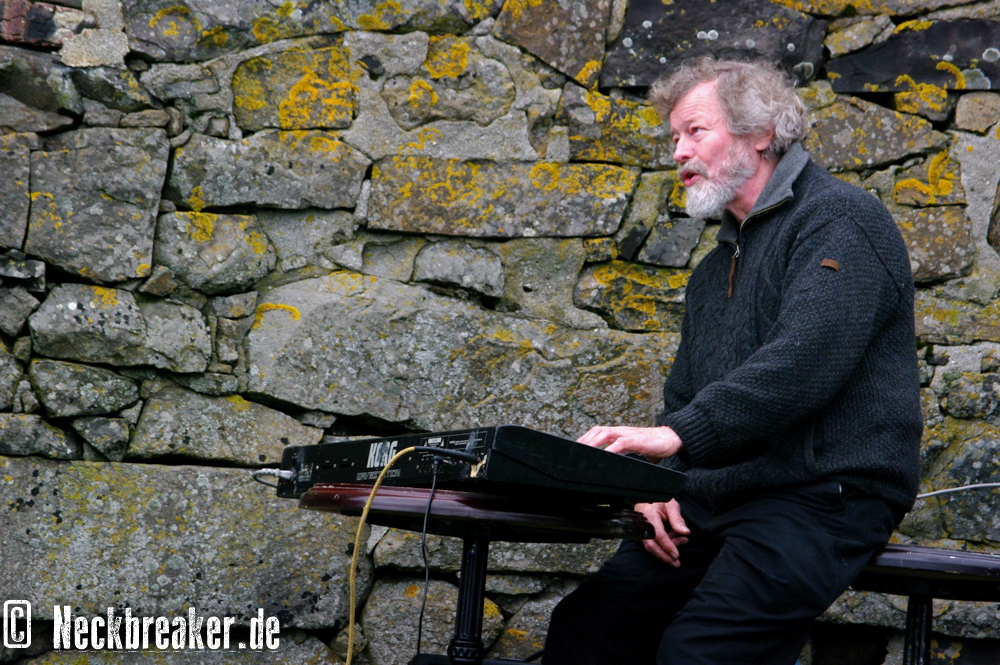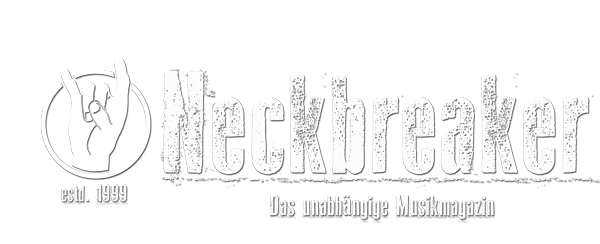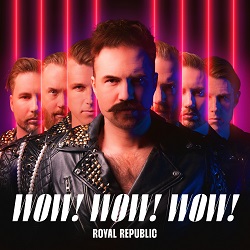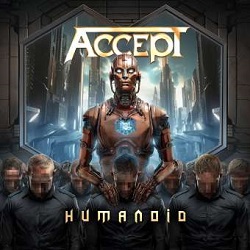 In the middle of the Tórshavn pedestrian zone, where the Niels Finsens gøta meets the Sverrisgøta there is an installation portraying dancing children. That place is called Káta Hornið. Káta Hornið is Faroese and means happy corner in English. And there couldn’t be a more fitting place for what you will find here: the record store Tutl. But it is not only a record store, it is also a label – the main Faroese label which is most important for the vivid Faroese music scene. And it is also a place we visit with our group at the very day of the Faroese Music Awards. Kristian Blak, (co-)founder of both the record label and the shop tells us stories about the beginning and the present, about artists and business partners, the development of Faroese music and the current situation for Faroese musicians.
In the middle of the Tórshavn pedestrian zone, where the Niels Finsens gøta meets the Sverrisgøta there is an installation portraying dancing children. That place is called Káta Hornið. Káta Hornið is Faroese and means happy corner in English. And there couldn’t be a more fitting place for what you will find here: the record store Tutl. But it is not only a record store, it is also a label – the main Faroese label which is most important for the vivid Faroese music scene. And it is also a place we visit with our group at the very day of the Faroese Music Awards. Kristian Blak, (co-)founder of both the record label and the shop tells us stories about the beginning and the present, about artists and business partners, the development of Faroese music and the current situation for Faroese musicians.
It all started in the 70s. Interestingly it started as a label and the shop came later. Then in the 90s there were three or four record stores in Tórshavn. The Tutl shop could be found in the SMS shopping mall, but as Kristian says, laughing: “then we were thrown out of the shopping centre because we were too long-haired.” So they moved into the current shop at Káta Hornið. Up until the 90s music from the Faroes was limited to a few genres, but then “there were volcanic eruptions from the basements”. All of a sudden many bands of all genres developed. Metal, Pop, Ethnic music, Classical music, “village pop”, as Kristian calls it, just everything. Except Reggae. “We don’t have Reggae music because we don’t have palm trees”. The most famous bands from the islands are EIVØR, TEITUR, TÝR and HAMFERÐ.
After 2000 the Faroese music scene exploded. Faroese bands tour so much that Kristian lost track where in the world they currently are. They played just everywhere, from Siberia over North America to Australia. He himself will play in Tahiti next year.
Kristian is not the owner of the label. “We are all owners, so to say” he states. 65% of the label is owned by musicians, the rest by investors. The people who work for Tutl are paid by the percentage the musicians give to the label, but also through sponsoring by insurance companies, investors and by the investment fond of the country, which is used to promote Faroese music abroad. This started seven years ago and it paid off. They work together with factory92 in Hamburg, Germany who help them in many ways. One is to tell musicians in case they are not good enough. Tutl never rejects a Faroese artist. Sometimes they give advice when something is not so good, but they never turn someone away “because even if something is not so good the first time, it might develop into something”. But they send packages to factory92 and they clearly tell them if something is not good enough. “We would never have the courage to tell this to our musicians, so it’s good we have them [to do that]”.
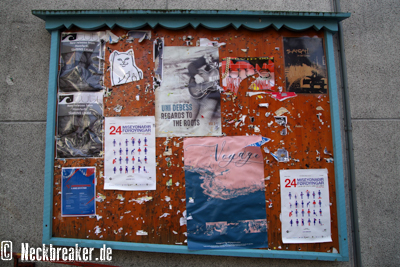 There is no real concurrence on the Faroes, as Tutl is more or less the only label on the islands. There are some artists who run their own label, but that’s just to release their own music. They don’t sign other artists. And Tutl? Do they sign artists apart from Faroese ones? Kristian says the more known Tutl becomes in the world, the more requests they get. But they have to turn away most of them, because you need to put too much energy into promoting for example pop albums and it is Tutls policy to use their energy on the Faroese artists. An exception is folk and classical music. They sometimes accept these artists, because folk and classical music mostly work for themselves in their own countries. And as a bonus they sell one or two albums in the Tutl shop as well. They also released some albums in world music and jazz from other countries.
There is no real concurrence on the Faroes, as Tutl is more or less the only label on the islands. There are some artists who run their own label, but that’s just to release their own music. They don’t sign other artists. And Tutl? Do they sign artists apart from Faroese ones? Kristian says the more known Tutl becomes in the world, the more requests they get. But they have to turn away most of them, because you need to put too much energy into promoting for example pop albums and it is Tutls policy to use their energy on the Faroese artists. An exception is folk and classical music. They sometimes accept these artists, because folk and classical music mostly work for themselves in their own countries. And as a bonus they sell one or two albums in the Tutl shop as well. They also released some albums in world music and jazz from other countries.
The Tutl shop started of course with selling vinyls. In the 90s someone recommended CDs to them, but they didn’t want to sell CDs because they thought they would be outdated soon. But things happened fast that time and only half a year later they had CDs to offer and vinyl vanished. Today, the digital market has become much, much more important. For some reason it happened that Faroese classical composer Sunleif Rasmussen was chosen by spotify as “composer of the week” – leading to the fact that his music was listened to by thousands of people, drawing attention to Tutl and its music as well. So not everything is bad in the digital age. Today, Tutl has so much income from streaming that they can pay three people from that.
And there are quite some albums at Tutl that are released only digital. I asked Kristian why and he had a reasonable answer: Artists who don’t tour, especially not abroad, often only do digital albums. They know they could probably sell only 50 to 100 albums on the Faroes. Many artists who decide to have their album released as a CD only want to do 300, but Tutl mostly orders 1000 as it costs the same. When the album is released on vinyl they do 300 to 500, sometimes only 100. Speaking of vinyl: After having vanished completely it had a comeback since a few years. There is no LP plant on the Faroes, so Tutl works together with Discard, driven by a German living in Kopenhagen and Sonopress in Germany. In value, they now sell as many vinyls as CDs.
What is also special on the Faroe Islands: Sponsorship. It is very common that local companies sponsor musicians. As Kristian says: The people from the villages are better off. In the villages you can often find big companies and they like to support locals. Whereas it’s not that easy to find sponsors in Tórshavn, simply because there are so many people who need or want a sponsorship. Kristian thinks this is a bit strange, but that’s how it is. Kristian Blak has a way in telling stories in the most entertaining way and although he talked nearly an hour we would have loved to hear more. But he says, laughing: “I think I talked enough”.
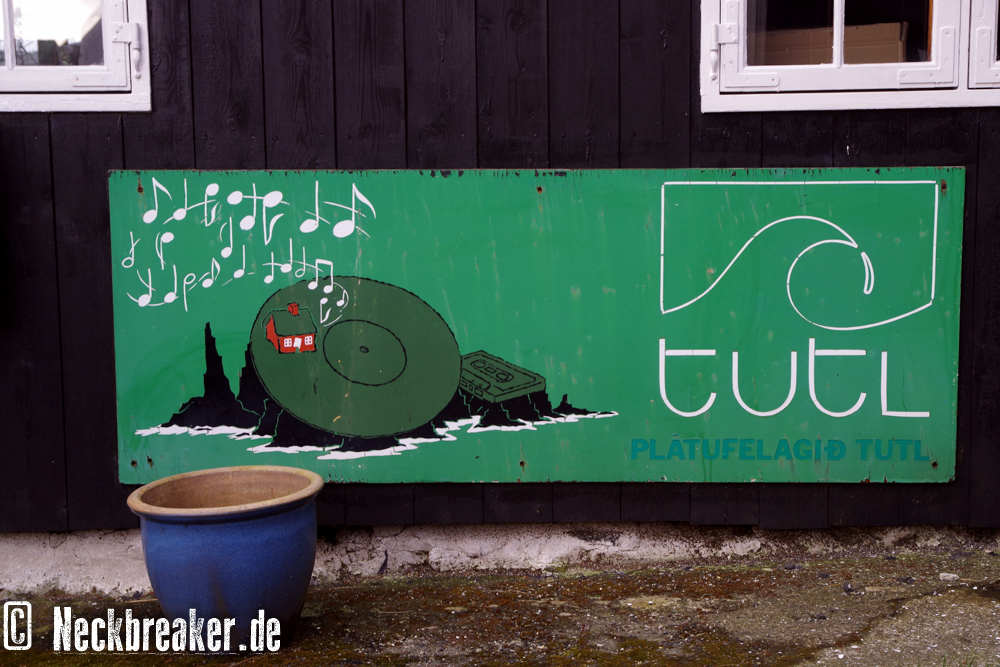
A few days before we visited the Tutl shop I made a spontaneous appointment with Kristian Blak for an interview. So we head to the Blábar, a nice and cozy bar in the city center, dedicated to Jazz and Blues. So if you’re into these styles of music, make sure to drop by when you’re in the city. We listen to the music, drink a beer and I ask my questions. I thought it would be a short interview as I had not time to really prepare something, but it turns out it is impossible to make a short interview with Kristian Blak.
Anne: You have to know that my readers don’t know anything about the Faroe Islands, so can you maybe just introduce yourself? As you are not Faroese but moved to the Faroe Islands some time ago, you can maybe just start there.
Kristian: My name is Kristian Blak, I live in the Faroe Islands where I am a composer and music organizer. I am born in Denmark, which is far away from the Faroe Islands in some way – also culturally. The Faroe Islands have their own language, related to other languages of the Nordic countries, but definitely its own in a way that other people from Norway, Iceland, Denmark don’t understand what we say. But anyway, I came here 45 years ago and like the country in itself, the landscape, the ocean … that’s very much why I came here but the culture was just as challenging and entertaining, so to say. It was always something fun to do and we organized jazz clubs and labels in the 70s, so it was a very, very challenging period. This evening we have just had a meeting of the musician’s union and now it’s almost 40 years ago since we started that. It was a period when we began organizing what had been organized 100 years, or, at that time, 50, 60 years before in the other Scandinavian countries, in the Nordic area.
Anne: So was there a point when you just decided this country needs a label or did this just develop over time?
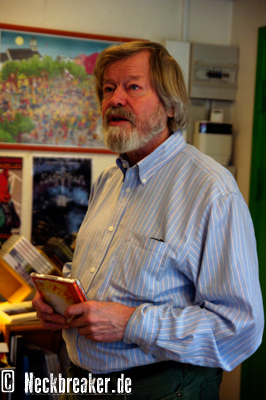 Kristian: We didn’t plan that child, so to say. It was part of the jazz club. The jazz club is an association of people who like to listen to live music as jazz, folk and rock, also beat. We started in 1975 and we thought it would be interesting to make LPs. We made 3 LPs with music that happened in the club. There was not really an artistic idea around it but the documentation of visiting musicians together with the Faroese and that started the label before it became a label. And together with some folk music bands I’m playing in we had ten LPs after two years and the jazz club thought it was not really good to have a jazz club label. It was much better to have it open and to have its own individuality and then one of the board members had already the name. She said: “I have a name for it, that’s tutl [tutl means whispering, muttering, chatting]”. “Oh yeah”, we said, “that’s it”. That was two years after we started. We had kind of a child without a name for two years. We started from 1977, the first recordings were made and since then in the first years with folk and jazz, because there were two other labels. One more with rock and one with popular music. We filled out that space, concerning the genres. And quite many years after that, actually in the late 80s we began also with classical recordings but in the 90s some of the rock groups began making their own music. And that developed enormously in the 90s. From 1992, when we had the first couple of rock bands. In numbers: Indie, Singer/Songwriter, Rock, Metal - that fills more than the other genres that started up the label. But all genres are alive, there’s nothing that has been dying out, on the contrary, it’s developing. All genres. But especially the development from the 90s. Everything is changing in the music world but we rarely travel out to other countries to show what we have produced in the Faroe Islands. It was mainly me for the first years and now we have a much larger team and also a collaboration with factory92 in Hamburg the last 10 years. And a lot more of the activity. But it’s still wide; we have for such a small society quite a variety.
Kristian: We didn’t plan that child, so to say. It was part of the jazz club. The jazz club is an association of people who like to listen to live music as jazz, folk and rock, also beat. We started in 1975 and we thought it would be interesting to make LPs. We made 3 LPs with music that happened in the club. There was not really an artistic idea around it but the documentation of visiting musicians together with the Faroese and that started the label before it became a label. And together with some folk music bands I’m playing in we had ten LPs after two years and the jazz club thought it was not really good to have a jazz club label. It was much better to have it open and to have its own individuality and then one of the board members had already the name. She said: “I have a name for it, that’s tutl [tutl means whispering, muttering, chatting]”. “Oh yeah”, we said, “that’s it”. That was two years after we started. We had kind of a child without a name for two years. We started from 1977, the first recordings were made and since then in the first years with folk and jazz, because there were two other labels. One more with rock and one with popular music. We filled out that space, concerning the genres. And quite many years after that, actually in the late 80s we began also with classical recordings but in the 90s some of the rock groups began making their own music. And that developed enormously in the 90s. From 1992, when we had the first couple of rock bands. In numbers: Indie, Singer/Songwriter, Rock, Metal - that fills more than the other genres that started up the label. But all genres are alive, there’s nothing that has been dying out, on the contrary, it’s developing. All genres. But especially the development from the 90s. Everything is changing in the music world but we rarely travel out to other countries to show what we have produced in the Faroe Islands. It was mainly me for the first years and now we have a much larger team and also a collaboration with factory92 in Hamburg the last 10 years. And a lot more of the activity. But it’s still wide; we have for such a small society quite a variety.
Anne: And you also started this kind of a festival, the Summartónar. When did you get the idea to do that?
Kristian: First I have to say that classical composition, like the first piece you heard tonight [we were attending a classical concert earlier this evening] - that is so new in the Faroe Islands, that none of us is dead (laughs). We started it actually in the 80s. Sunleif [Rasmussen], me and Pauli [í Sandagerði] who currently lives in Denmark, we started in 1984. Just a little bit sporadic before that. And that’s very few years. But over those years, we have developed a repertoire and so many compositions that we can fill many festivals, many music programs with our own compositions. This said, we were asked to come to a festival in Orkney, that’s called Magnus festival, after the cathedral, that has been going on with Maxwell Davis compositions since the 70s. It had already been for 15 years. We were there in 1991 and when we came back we said we can do the same here. They only have the population of the Faroe Islands, so we can do the same. And they didn’t have the same number of composers. It was more classical, the classical classical. Beethoven, Bach and so on. So we made the first Summartónar in 1992 and that developed. It is now 150 concerts in the summertime every year. It’s quite a big organizational job, but it’s very fruitful, because all the concerts include Faroese music. Not only one piece, but half the program. And no one would do that for us, so it’s also a very good platform for us plus all the musicians that are not playing their own music necessarily. This said, from 1992 til 2004 it was classical music.
Anne: Just classical music?
Kristian: Yes. Simply because there was a jazz festival. And a folk festival parallel. And there was no need to mix them. But in 2004 the leader of the jazz festival, which had been going on for 20 years at that time, moved, so it stopped and we tried the first year to make a similar one, but then we looked at each other: “We are the same people, doing two different styles, let’s just do it together!” because jazz and new folk have a lot to do with classical music on the composer’s side of it. And now it’s kind of 50/50 rhythmical music but still we’re not having standard jazz being played. Not that we don’t like it but that’s not our obligation. It can be done by others. And every year there’s a commission being made to the composer’s society. I’m the chairman of the composer’s society. I can help get in contact with composers. And then we have to work at least one year ahead because it takes a while to develop compositions, of course.
"I think that's a privilege, not to be able to retire"
Anne: And you also organize those concerts in the caves on Hestur. How did that start and how did you even find out that you can play concerts in the caves?
Kristian: Yeah, it is much my own idea, so to say. I didn’t really invent it, but in the first years with YGGDRASIL, in 1982 and 1983, I used sounds from nature. Raven sounds (makes astonishing real sounding raven sounds) and rivers, ocean and wind and rocks falling. That’s an integrated part of the performance. We had to use tape recorders. Then, a consequence, so to say, was to go out where the sounds were. And a friend of mine, he said “I know a cave where I think you should make concerts. Because then you have that”. And he showed us a cave and I put it on the program in 1984. It was in Sandur on Sandoy. There is a cave between Sandur and over the mountain. You actually drive over the cave, it is under the road, just at the corner. That was very, very complicated. We had seven musicians, and a recording system and loads, very, very heavy and the hillside was like this (shows how steep it was – very steep). But most of us were relatively young and quite fit for doing it. And it went very well, it’s recorded, it’s a LP. Although it was a success musically and also for the audience, I didn’t intend to do that again because that’s a very big thing to do. But a farmer on the other side of the island said “You must come and play in my cave as well!” because the legend says that the cave we were in has a hole that goes through to the other side. So then we said, yes, we will come there. It doesn’t have an acoustic, that cave, it’s much more open. But it is beautiful anyway, seals coming and listening, but the skipper on the boat, we sailed out to there as there’s no road that goes there, he said: “Uh oh, I know caves that are much easier to access, you can sail into them!” He wanted to show it to me. That was much later, it feels almost the same period, but it was 12 years later. 1996. And when we came in there, immediately I could hear it was really a hair-raising sound that kind of stayed, like in an enormous cathedral. And it was a perfect day, this day. When the sea is calm and the ocean is like a mirror then it reflects also like a mirror. If there are some waves it becomes different. Different is also good. Then we developed that the following year with quite many public concerts. And even if we can only take 50 at a time there have been far more than 10.000 people in there. It was already 5-10 years ago since it must have been 10.000 people. So every year we have two concerts per week, Tuesday and Sunday all through summer. Sometimes we cannot come in because of the weather conditions.
Anne: What are you doing then instead?
Kristian: We sail out on a schooner, an old ship, and that schooner has some motorboats that can take quite many passengers, safe boats. They sail into the cave, around 150 m you can sail in and in the cave there’s another small boat with the musicians. Normally just one. It’s not ideal for many musicians in that cave because then you mix the sounds and it can become really distinct. The musicians have to play different from a jazz club. You must not respond directly, you must wait for the resonance to respond as well. But that is the way we do it, the audience then just sits and listens like in other concerts. But none of the trips are alike. They’re all a little different and the musicians and everybody has to be alert to find out the right things. When the wind comes from the West, it’s normally not possible to go into Hestur. Then there’s an eastward cave in Nólsoy, then we go to there. There are also other caves, or many other caves, but they’re too far away and we cannot just announce concerts some days before. It has to be planned a long time before. We just do it and take the risk that it won’t be possible. Last year it were only 2 out of 18 I think, that didn’t succeed. It is always something to do. Rain doesn’t matter at all. It’s only wind and current.
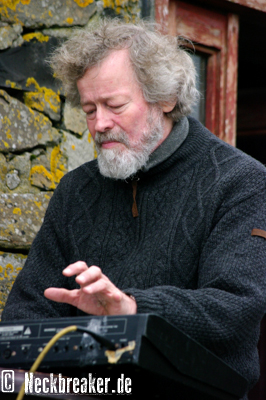 Anne: I want to attend to one of them this year, I hope we can make it. And now we change the topic completely. When you order a CD from your shop, it always comes with a lot of stamps. That’s not usual nowadays. Normally today you just get a packet and that’s it. No stamps on it. But when you order from your shop, there are always beautiful stamps on it.
Anne: I want to attend to one of them this year, I hope we can make it. And now we change the topic completely. When you order a CD from your shop, it always comes with a lot of stamps. That’s not usual nowadays. Normally today you just get a packet and that’s it. No stamps on it. But when you order from your shop, there are always beautiful stamps on it.
Kristian: We have actually bought quite many stamps for that purpose. And I think it’s picturesque and interesting for the customers to get real stamps instead of just machine-made one. We can get that. It’s not because it’s primitive, it’s is intentional.
Anne: No, no, I think it is cool. I really like that. But it’s not usual today.
Kristian: No, it’s really seldom you get that. I get from my relatives, they also put a lot of stamps on it, maybe it’s some ideas from there.
Anne: I think it’s beautiful.
Kristian: Yes, and at the same time it doesn’t cost us more. And it gives just one more idea of the Faroe Islands. Visually, I mean. And some are collectors of stamps, they can use them.
Anne: And one last question: I hope you don’t feel insulted now but you not the youngest anymore, have you ever thought about retiring?
Kristian: I have retired a couple of times. That’s from what I’ve been doing. I was a teacher at the gymnasium. And stopped that in 1998. I started visiting foreign countries to promote Faroese music, that was not possible to do with those obligations. I mean, everything was possible, but I didn’t want to do things 50%, I wanted to go full. So I retired from that job. But I got actually more and more involved in music. And I’m trying to retire from various positions. Tonight I retired from the musician’s unions commitee. I’m not running away, I’m still doing their accountings, that remains. So that’s retiring, but that’s actually not to not do anything, that’s because I need more time to tour. I play many tours abroad and I need time to write music. I want to write concerts. And that takes a certain amount of time. But I think that’s the privilege that artists and performers have that is to keep alive. I couldn’t imagine what I should do if I should retire from that part of my activity. I only know artists that retire if they get sick (laughs) or maybe sick of themselves. I mean if you feel that you are repeating yourself that is a challenge. Actually at the moment I am repeating myself but in a positive way. YGGDRASIL is reperforming over the next year all the music from the 80s. Making concerts just with the music and that’s quite a job, but it has been lying there for a long time and no one else – that’s not quite true – but almost nobody would play because these suites and these long compositions are quite personal. I mean, made for special musicians. But that I think that’s a privilege, not to be able to retire (laughs).
Anne: And do you also tour in Germany?
Kristian: It has changed a little. I know at least in Sweden and Germany that the culture institutions have less money to pay musical fees. So it’s not been easy. Nothing is easy but YGGDRASIL played one week every year in Germany. Since 2004 I think. But not last year. Because those institutions, jazzclubs, Musikverein (he uses the German word for music association), that have some funding and they can only make one or two concerts not ten, as they could before, as far as I understood. And those places we played most were Passau and Tübingen and some towns around there. I don’t know if you know Helmut Wilhelm? Probably not.
Anne: No.
Kristian: He is an eye doctor, a professor. But he comes here quite often and without knowing each other he asked me if it wasn’t possible to invite us down to the hospital to play concerts. Because he organizes that kind of music in the Tübingen medical school. So we played in the Augenklinik (again, he uses the German word for ophthalmic hospital). There was not enough space so we went to the dentist clinic (laughs). Dentist jazz... But we played there many times with the help of him and in the neighboring town also and in northern Germany. We have this invitation and we want to make a tour in January but I haven’t worked on it at all, so nobody knows it but this is interesting in a part of the idea of being a touring musician, that is to work one year ahead. And then sometimes it happens and we get invitations so it can be a little bit strange. But this year I started with almost nothing. I wanted to play mainly in the Faroe Islands but we go to America in April. That’s a folk tour, not much a concept tour, but it’s music anyways. Then to Estonia, then to play in Italy in May then there’s a lot of the Summartónar and after summer we have concerts in Trondheim. And in Russia, in Siberia. And next year we are planning Tahiti. Where haven’t we been? And I always wanted to see Tahiti but I never go anywhere without musical back. Simply - not simply, but mainly because it’s much more - you meet people in a very, very different way if you are coming with an artistic mission. And we also like very much to include musicians that live in the area. Not that the music is better but it gives a connection to the audience. There’s no bad commercial side about it, it’s just very giving. That’s very interesting to do that.
Anne: Yeah, and I think those where my questions, it’s a rather short interview. Thank you for taking your time!
Kristian: You’re welcome!
